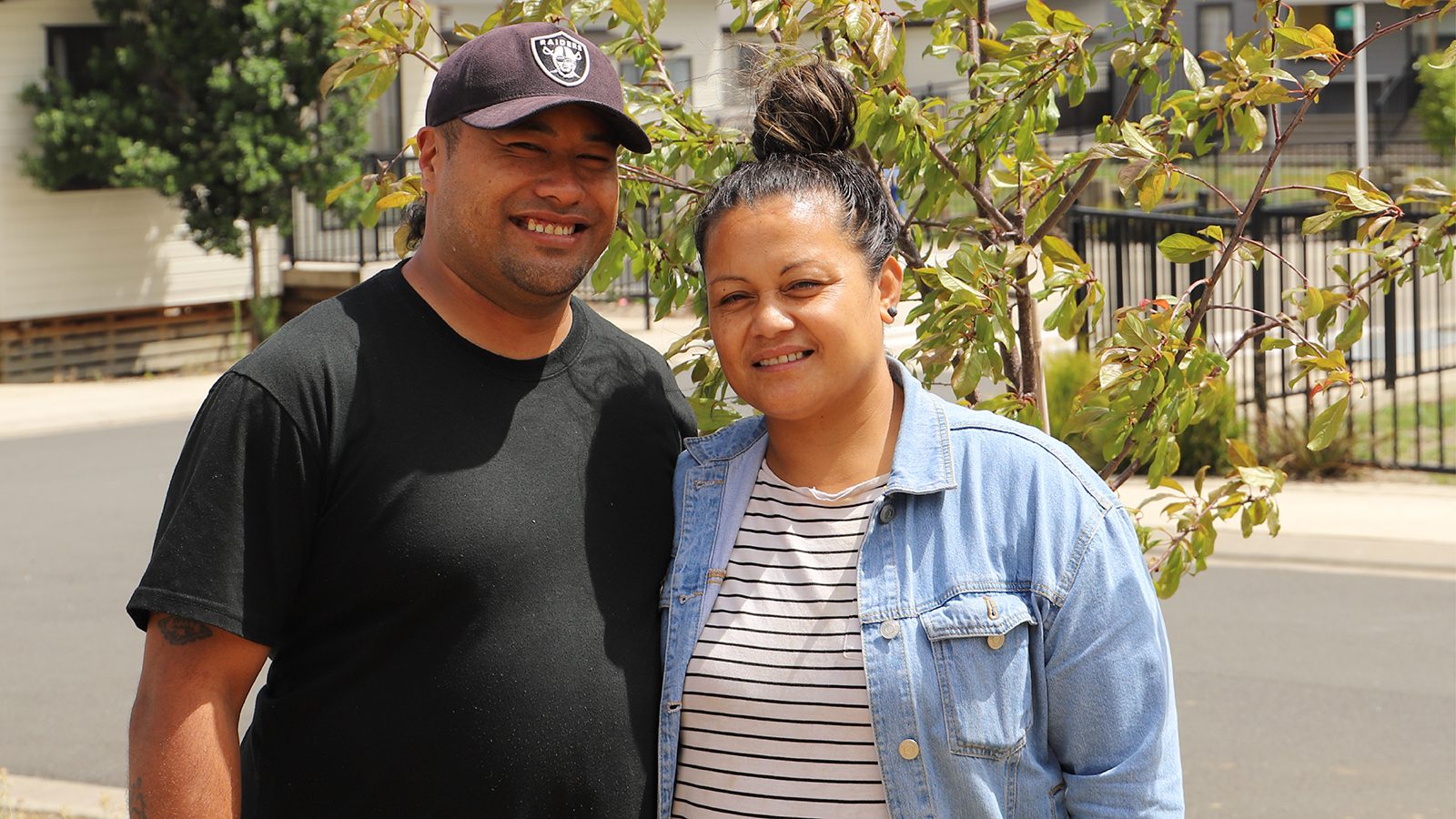Living in a Visionwest house in the Luke St transitional housing development, Daniel and Emma are loving life. Daniel has his dream job, they have safe and comfortable housing, their five children are happy, and their relationship has never been better. But it hasn’t always been easy.
Daniel talks about life before Luke St, “Before I came here, I was separated from my wife and family and I was about to give up on life. But Emma got a Visionwest house here at Luke St and I saw how well she and the kids were doing. I was fortunate that I was given a second chance and was able to learn from the great courses that are provided by Visionwest.”
Emma agrees, “Getting a Visionwest home was great but it’s been the courses that have made the difference. I’ve done Legacy [a self-empowering programme for women], budgeting, cooking and sewing. The skills we learn in these courses are awesome, but they also help us all to get our confidence back and put hope back into our lives. That’s important because rejection was a big part of my life before.”
The need for confidence and hope is a sentiment echoed by many of the residents at Luke St. When a person has been homeless or is constantly struggling to find a place to live, it has a huge impact on the way they view themselves and the future. That feelings of rejection and loss of confidence that Emma speaks of results in many withdrawing from contact with others. For others it can lead to antisocial behaviour.
Daniel says, “The Visionwest Support Workers at Luke St are great. Their care for everyone has opened my eyes to realise that there are people out there who actually care. After feeling rejected by every person we hoped could help us and thinking the system we live in was against us, we discovered Visionwest are not placing people in houses and forgetting them like they are just a number. The Support Workers here actually care and want us to feel accepted and to succeed.
“I’ve graduated from the Man Up programme twice. The first time I didn’t really understand it all, so I went through again and it all made sense. Now I’m in another father’s group. It’s great to feel like I’ve learned the skills to be the husband and father I really want to be.”
Daniel and Emma agree that they are different people than when they arrived at Luke St. They talk about being connected as a family and having the practical and interpersonal skills to cope with whatever life throws at them.
Daniel concludes, “I can say that, while many families don’t want to leave Luke St, we know this is transitional housing and we’re prepared and ready. And, when we do move on, we will leave as better people. We can leave knowing that we won’t look back on our life as it once was. I’m not going through this cycle again, I’m confident we can make it on our own now thanks to Visionwest and all the help we’ve been given.”
Sadly, one of Daniel and Emma’s greatest challenges may still be ahead of them as they look for permanent rental accommodation. A recent Stuff article commented on a Statistics New Zealand report, Housing in Aotearoa: 2020, which stated that Pacific Islanders come out the worst on almost every housing measure and that severe housing deprivation rates for Pacific peoples were close to four times the rate for Europeans.
The report also stated that Pacific renters were more likely to be tenants of Kāinga Ora. Further, nearly half of Pacific peoples lived in homes affected by dampness or mould, compared with just over one in five Europeans and the proportion of people with access to the seven basic amenities (cooking facilities, tap water that is safe to drink, kitchen sink, refrigerator, bath or shower, toilet, and electricity supply) inside their dwelling was lowest for Pacific peoples, at 86 per cent.
CLICK HERE to read the Stuff article and more about the housing challenges faced by Pacific Island families.
To find out more about Visionwest Transitional Housing – CLICK HERE.



